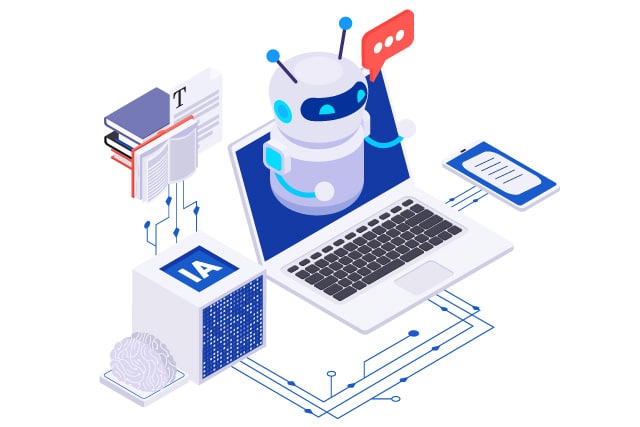Ethical considerations in AI development

In today’s rapidly evolving digital landscape, the ethical dimensions of artificial intelligence (AI) development have sparked intense debate. This post delves into the moral responsibilities of those at the helm of creating these intelligent systems.
The discourse surrounding the necessity for ethically guided AI is not just academic but a crucial pillar for sustainable and equitable technological progress. This exploration seeks to untangle the complexities and propose pathways towards more responsible AI creation.
Ethical Foundations in AI
The bedrock of ethical AI development lies in acknowledging the profound impact these technologies have on societies worldwide. From decision-making algorithms to autonomous systems, every aspect of AI integration touches upon ethical considerations.
Principles such as transparency, justice, and respect for human rights must guide the development process. It is imperative for developers to not only heed these principles but also actively incorporate them into their creation methodologies.
As AI systems increasingly become part of critical infrastructure, the moral imperative to ensure these systems do no harm has never been more significant. Thus, ethics in AI is not an optional add-on but the foundation of principled development.
Engaging with ethicists, sociologists, and the broader public is essential for enriching the ethical discourse in AI development. This multi-disciplinary approach helps in creating systems that are not only intelligent but also just and equitable.
Challenges in Ethical AI Implementation
Despite the consensus on the need for ethics in AI, embedding these principles within the fabric of AI development presents numerous challenges. One of the most daunting is the reconciliation of diverse ethical frameworks across cultures.
The dynamic nature of AI technologies further complicates ethical considerations, necessitating a flexible approach to ethics that can evolve with technological advancements.
Moreover, the commercial pressures and the race to innovate can sometimes sideline ethical considerations, leading to the development of systems with questionable moral implications.
Case Studies: Lessons Learned
Real-world implications of AI systems, such as biased decision-making or privacy infringements, underscore the urgency for ethical diligence. Analyzing these instances can provide valuable lessons for future developments.
By examining successful integration of ethical considerations and where shortcomings occurred, developers can gain insights into incorporating ethical foresight into their work.
The discourse on ethics in AI has spotlighted notable projects where ethical considerations have led to more inclusive and harm-reducing technologies. These examples serve as blueprints for aspiring ethical AI systems.
However, it is also crucial to study AI missteps to prevent repeating these errors. Learning from past failures is an indispensable part of progressing towards more ethically sound AI.
Fostering an environment of transparency and accountability in AI development is essential for building trust in these systems. Openness about the ethical decision-making process can demystify AI operations and reinforce public confidence.
Ethical Guidelines and Frameworks
In response to the growing demand for ethical AI, various institutions have proposed guidelines and frameworks to assist developers in navigating this complex terrain.
These guidelines offer a structured approach to ethical AI development, highlighting key areas such as fairness, accountability, and transparency.
While these frameworks are a step in the right direction, their practical application requires diligent effort and unwavering commitment from the AI community.
Adhering to these ethical guidelines not only enhances the societal impact of AI but also contributes to building a more trustworthy relationship between technology and its users.
The Role of Regulation in Ethical AI
Governmental and international regulations play a pivotal role in ensuring that AI development adheres to ethical standards. These regulations can provide the necessary boundaries and incentives for ethical AI practices.
However, regulation alone is not sufficient. It must be complemented by self-regulation within the tech industry and ongoing dialogue among stakeholders to address new ethical dilemmas as they arise.
Striking the right balance between innovation and ethical responsibility is crucial for harnessing the full potential of AI in a manner that benefits all of humanity.
Conclusion
The journey towards ethically sound AI is complex and requires the concerted efforts of developers, regulators, and the global community. As we stand on the precipice of the AI revolution, the choices made today will shape the ethical landscape of tomorrow’s technologies.
Embracing ethical considerations in AI development is not merely an academic exercise but a necessary evolution towards more humane and just technological advancements. By fostering a culture of ethical awareness, we can ensure that AI serves as a force for good in society.
Embedding ethical principles into the fabric of AI development is imperative for fostering technologies that are not only advanced but also aligned with the greater good of humanity. The exploration of ethics in AI is a journey worth undertaking for the benefit of future generations.

Related